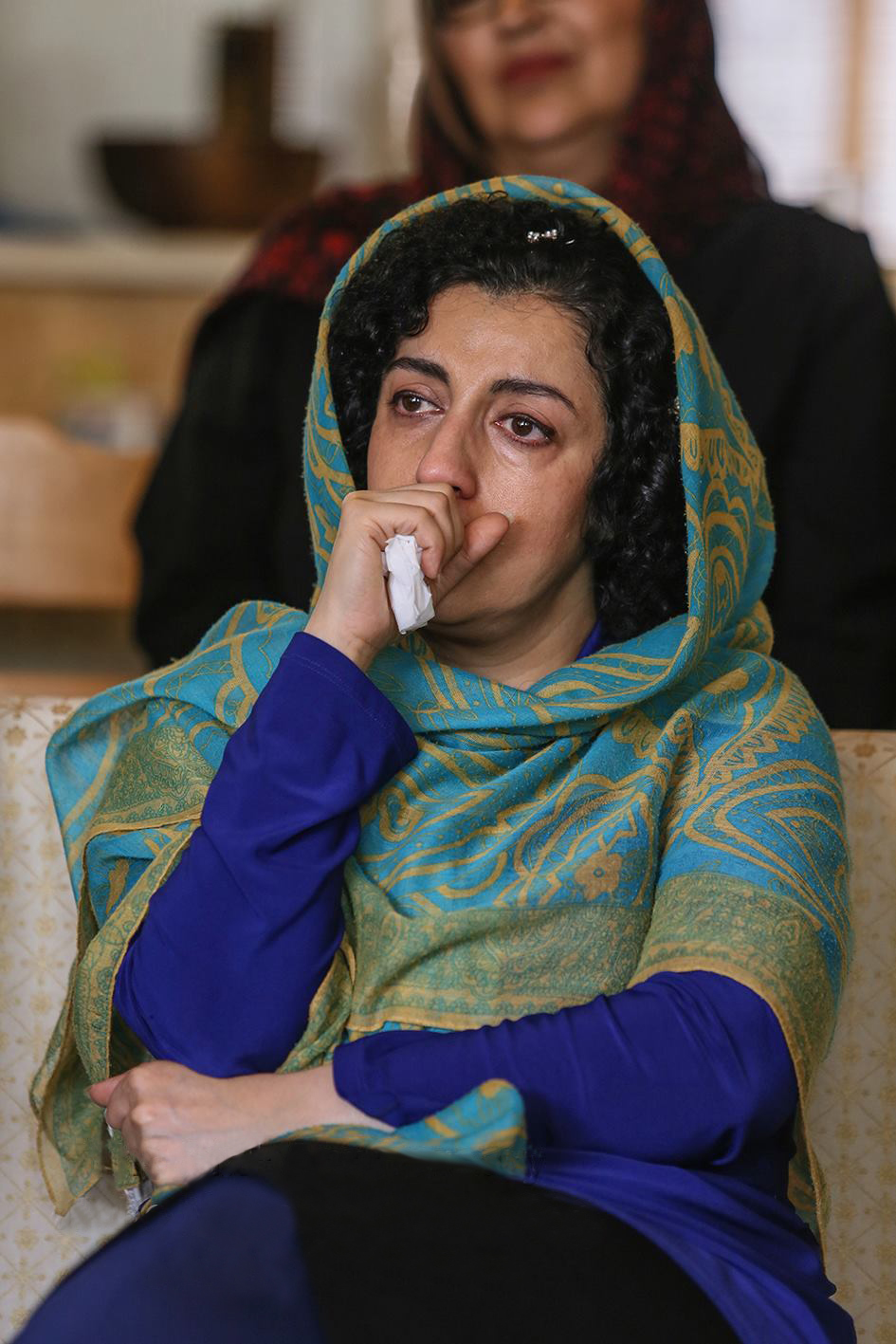
GENEVA, SWITZERLAND — In an unprecedented show of solidarity, influential Iranian personalities, human rights activists, journalists, and a prominent religious leader gathered this week in Tehran to commemorate the sixth anniversary of the imprisonment of the seven Iranian Baha'i leaders and to express support for them.
News of this highly significant gathering spread rapidly through online and social media yesterday. The centerpiece of the coverage was a photograph of those assembled in a private home around a large photograph of the seven.
The meeting reflects a growing movement by Iranians inside and outside of the country who stand for the belief that "Iran must be for everyone" and who reject the persecution of that nation's Baha'is and oppose the government's stance in oppressing them, as noted yesterday in a letter from the Universal House of Justice to Iranian Baha'is.
A detailed account of the gathering was published on SahamNews, a reformist Iranian website.

"Until last year there would have been no possibility of a gathering such as this and we couldn't even speak about the pain we hold in common," said Nasrin Sotoudeh, a prominent human rights lawyer and defender who was recently released from Evin prison. Ms. Sotoudeh was incarcerated with a number of Baha'i women including Mahvash Sabet and Fariba Kamalabadi, two of the seven-member group of Baha'i leaders.
"Mahvash and Fariba have kept up their spirit with extraordinary perseverance and they go forward with an amazing valor," she continued. "We are here together because the Baha'i community was oppressed and our mothers and fathers did not pay attention to this matter."
"We know the Baha'is for their honor and upright qualities," said Nargess Mohammadi, a prominent women's rights activist present at the gathering.
"I hope that one day our society reaches the stage where Baha'is, too, will be able to work and study," said Ms. Mohammadi, vice president of the Defenders of Human Rights Center, which has defended the seven in court and was founded by Nobel Peace Prize laureate Shirin Ebadi.
Other prominent activists and leaders present at the gathering included: Muhammad Maleki, the first head of Tehran University following the Islamic Revolution; Masumeh Dehghan, an activist and wife of Abdolfatah Soltani, a well-known lawyer who represented the seven and who is himself currently in prison; and Jila Baniyaghoob and Issa Saharkhiz, two prominent journalists who have also spent time in prison.
Mr. Maleki was quoted by SahamNews as saying: "I know very well that Baha'is are forbidden to go to university." He continued, "All beliefs must be respected. Let us honor one another's beliefs and put divisions aside... We have to work on common principles such as freedom."
Ayatollah Abdol-Hamid Masoumi-Tehrani, a senior Muslim cleric who recently called for religious coexistence, was also present at the gathering.
"Perspectives have to change," said Ayatollah Tehrani, according to SahamNews. "And I think now is an opportune moment for this."
Muhammad Nourizad, a former journalist with the semi-official Kayhan newspaper, who was himself recently in prison, likewise attended the gathering. He was quoted as saying: "Before I went to prison, I was weighed down by prejudice. But after I was freed from prison, the heavy weight of prejudice was lifted from me and my outlook has changed."